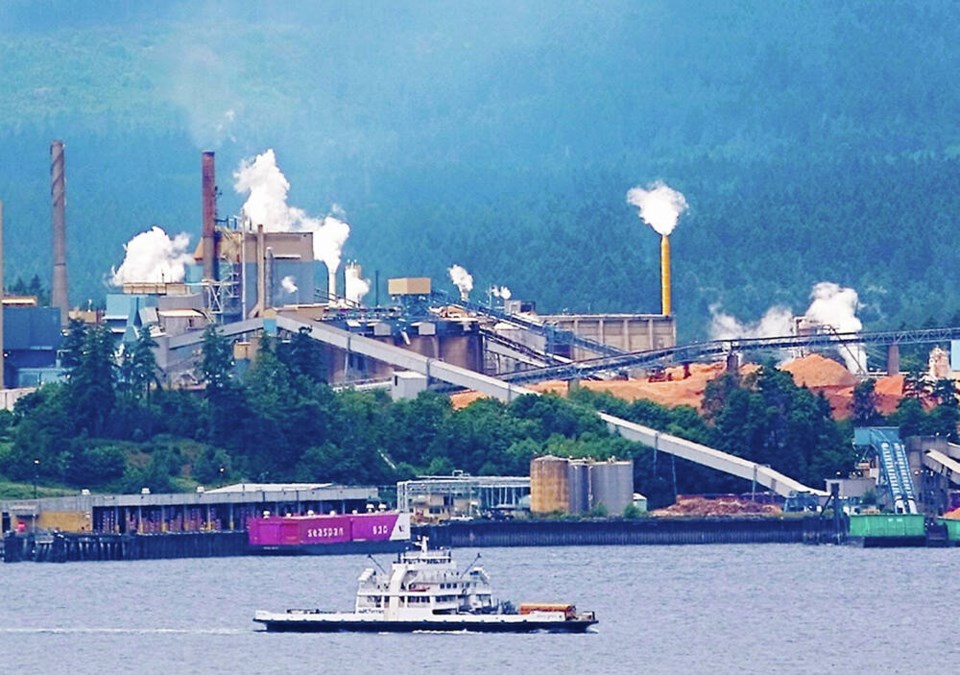More than 100 workers at the Paper Excellence mill in Crofton will return to work later this month as the company retools a machine to produce water-resistant paper to replace single-use plastics for the food industry.
Paper Excellence, which curtailed its C2 paper machine in December, citing soft markets for traditional papers and high input costs, announced a $50-million injection into the mill on Friday.
It will also include significant improvements to its boiler system that would use waste bark and wood instead of natural gas, a move that is expected to reduce carbon dioxide emissions by 26,000 tonnes a year — the equivalent of taking 5,600 vehicles off the road.
The federal government is contributing $14.3 million and the province another $4.5 million to kickstart the changes at Crofton.
Premier David Eby made the announcement in Crofton as a handful of idled union workers applauded the news they would be going back to work.
“We appreciate seeing government and Paper Excellence working together to support workers,” said Geoff Dawe, president of Public and Private Workers of Canada Local 2. “The investment for this project will help secure well-paying jobs that will attract more people to the beautiful Cowichan Valley. It will also help reduce the mill’s carbon footprint on the environment.”
Unifor western regional director Gavin McGarrigle said the investment in Crofton is a “step in the right direction” for B.C.’s forestry sector. “It is an industry facing uncertainty in many regions, but Unifor will continue to work with the provincial government to ensure forestry workers and their communities get the support they need to thrive,” he said.
Paper Excellence said it will be working with the unions over the coming days to determine details regarding the restart plan, including the official start date later this month.
The company said in the meantime, its C3 paper machine at Crofton will remain indefinitely curtailed.
This week, Eby announced $90 million in funding for forestry companies that require equipment to support new product lines, such as mass timber production or paper packaging.
He also announced $50 million through the Forest Enhancement Society of B.C. for projects that increase the use of low-value or residual fibre, including trees damaged by recent wildfires and beetle kill and waste left over from logging that would otherwise be burned in slash piles.




